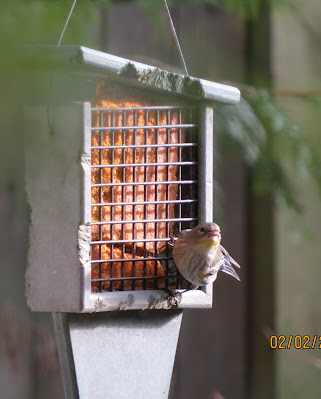For the Birds: Fall and Winter Birds
Monday, October 9, 2023
Migrant birds such as Western Tanagers, most of our warblers and flycatchers, plus our Osprey have flown southward heading to areas with winter food and warmth.
Because of our habitat-providing trees, this area has a good variety of resident birds, plus some that fly here to winter in our milder climate.
Year-round birds are easier to see in the winter perhaps because there are fewer leaves, or because they are drawn to bird feeders, suet, and liquid water in times of cold.
Two warblers who have adapted to our wet winter weather are the Townsend Warbler and the Yellow-rumped Warbler. They are a welcome splash of color during our grayer days.
 |
| Townsend's Warbler by Craig Kerns |
Indeed, I have been hearing Varied Thrushes for the last two weeks, which seems early for this area. Maybe it was too dry for their mountain bugs…
Fox Sparrows could be arriving anytime now. They particularly like habitat with Himalayan Blackberries.
These blackberry vines provide shelter from predators, protection from much of the cold weather, especially if we have snow (usually there is reduced or little snow on the ground under blackberry brambles), and there is always food such as bugs, spiders and leftover berries for them to forage.
 |
| Spotted Towhee by Christine Southwick |
It is important for conservation-minded neighbors to keep areas of fallen leaves until spring cleaning.
When I first started attracting birds into my yard, I looked to other yards that had Spotted Towhees and found those birds foraging through leaves.
When I first started attracting birds into my yard, I looked to other yards that had Spotted Towhees and found those birds foraging through leaves.
 |
| Yellow-rumped Warbler on suet by Christine Southwick |
Suet and water kept liquid are two other life-sustaining commodities you can provide for birds.
Suet supplies much needed protein, especially when bugs can be scarce during cold weather. Chickadees, Juncos, Bushtits, Hairy, Downy, Pileated woodpeckers, and Flickers will all come to suet feeders. Townsend Warblers and Yellow-rumped Warblers will also eat suet.





0 comments:
Post a Comment